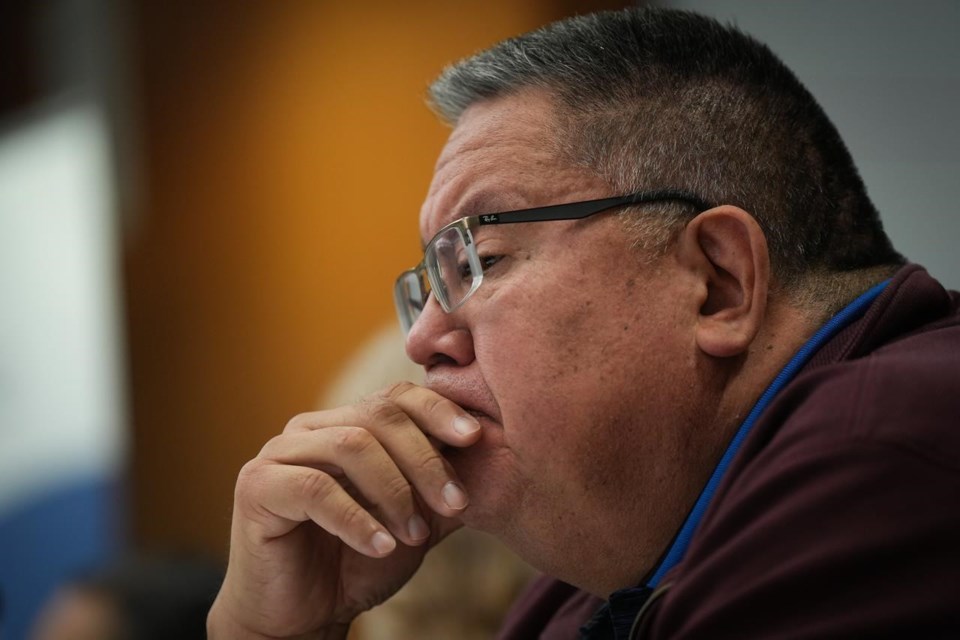VANCOUVER ŌĆö Doug Kelly, the grand chief of the Sto:lo Nation, says parents need to love their children unconditionally even if they use drugs.
His advice comes less than a year after his daughter died of an overdose and as new data shows the disproportionate impact of toxic drugs on Indigenous people in British Columbia.
"Do not shame your child or your loved one, do not judge. Simply be there," he said Friday.┬Ā
"And when they're ready, and only when they decide that they're prepared to move on their healing journey, like my daughter did three years ago, only then will they get the help that they need."
Kelly's daughter, who he isn't naming as part of his culture's grieving process, died after an overdose last Thanksgiving after years of sobriety.
Dr. Nel Wieman, acting chief medical officer of British Columbia's First Nations Health Authority, said First Nations people are disproportionately dying from illicit drugs in sa╣·╝╩┤½├Į and the gap continues to widen.
First Nations people represent 3.3 per cent of sa╣·╝╩┤½├Į's population, but the health authority says 16.4 per cent of those who died from overdoses last year were Indigenous. In 2021, that number was 15.2 per cent.
There were 373 deaths of Indigenous people last year in sa╣·╝╩┤½├Į
Kelly said First Nations women are being particularly hard hit in the overdose crisis.
"The only way that we can immunize our young girls and women is by building up their self-esteem, by helping them to become proud of who they are and where they come from," he said.
Wieman said the death rate of Indigenous women was double that of non-Indigenous women last year.┬Ā
"The grief and loss is immeasurable. As the acting chief medical officer, I can't stand here before you today and just routinely go through the motions of sharing the data," Weiman said, adding that their traditions of knowledge, ceremony, and connection to culture are a big part of what's needed to slow the number of deaths.
"We need to change how we think, about what we say, and how we treat people who use substances."
Weiman called for a series of changes, including more people to deliver programs in communities, and equitable and timely access to culturally safe services closer to their homes.
She said health-care workers in rural and remote communities are feeling burned out and asking them to do more is not going to work.
"When we talk at a provincial level about what types of interventions would be most helpful, we're really forgetting the realities of First Nations people who live in very rural, remote, isolated communities. What will programs look like?" she asked.
Kelly said First Nations need to secure funding to begin developing those services themselves.
He said his daughter and other Indigenous women don't feel safe in many of the programs funded by the sa╣·╝╩┤½├Į government.
"She had a very difficult time in finding services that didn't make her feel shame, didn't make her feel stigma. So, that's a really big issue," he said.
The First Nations Health Authority said it has changed its toxic drug crisis response to having a greater focus on First Nations women, dedicating a portion of harm reduction funding to supporting those living in urban areas and away from home.
Kelly said his time with his daughter taught him to be a dad and a grandfather who provides unconditional love.
"I learned that by walking with my daughter in her hardest times."
This month marked seven years since sa╣·╝╩┤½├Į declared a public health emergency due to the overdose crisis. The province estimates nearly 2,300 people died from toxic drugs last year.
This report by The Canadian Press was first published April 21, 2023.┬Ā
Ashley Joannou, The Canadian Press



